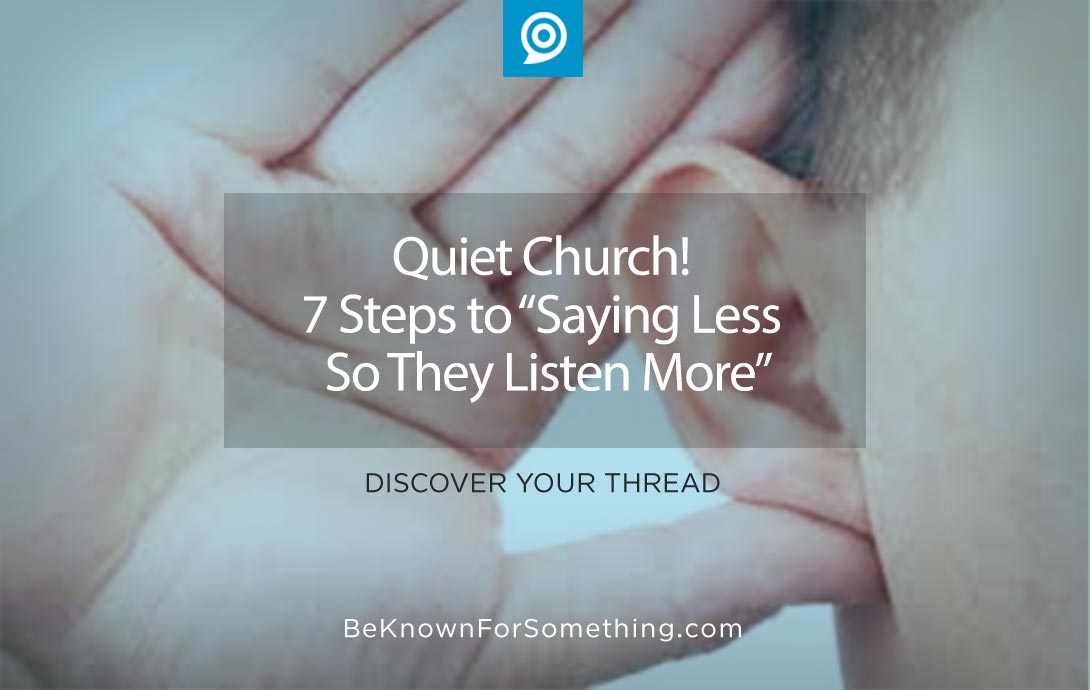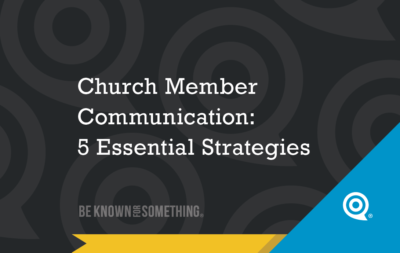Quiet Church! 7 Steps to “Saying Less So They Listen More”

If you’re in a quiet room and someone says something, you will probably hear it. As soon as you add ambient noise (like I have as I sit in an airport with so much going on); you really can’t hear anything. We’ve learned to tune out the noise.
If a church rarely makes a stage announcement, and then does, people are more apt to listen. If they always share lots of announcements (relevant and irrelevant), eventually people will half listen. Or may stop listening all together.
Talking twice as much is NOT the answer. In fact, it contributes to the noise and encourages less listening. This is where most of our churches are today. Noisy with no one hearing anything.
Perhaps we need to quiet our church communication and then people will listen more when we speak about opportunities. Imagine! Here are 7 steps to doing just that:
- Realize you have a listening problem. Are people aware of events, service opportunities, and ministry wins? Does the average member know what’s going on? Is attendance to well-produced events waning? Then repeat after me: “We must start saying less, so people will start listening more”.
- Understand that everything can’t be promoted equally. If everyone is screaming, it’s often because you have ministry silos that believe it’s better to try to speak louder than everyone else. Everything can’t be important. Some voices need to rise above others.
- Tier messaging so there’s a loudest voice (and quiet other voices). Decide a tiering system based upon how many need to be reached with the message. Does virtually everyone need to know about a church-wide picnic? Then it needs a louder voice than a committee meeting. Don’t waste the time of a congregation in order to get 12 people together. It’s probably better to email, text, or call each person.
- Understand that we battle attention spans. According to a recent study, humans have an 8-second attention span. We lose interest extremely fast and it’s not getting better. Once we lose interest, it takes more effort to restore it.
- Create a digital hub mentality. Details don’t need to be given. Instead establish that your website is the trusted place for the details. Then ensure that the event details are accurate and easy-to-find. Perhaps create a page on your website that has filterable (based on ministry or demographic) event information for the next 2 weeks. A customizable online bulletin if you will.
- Monitor engagement and understanding and adjust. It’ll take a while, but when you start sharing less because you’re ensuring relevant information to the majority, you’ll start to see more listening and engagement. Decide what metrics to follow so you know how much you need to adjust. And then let leadership know the success you’re having!
- Ensure smaller groups have other mechanisms to communicate effectively. And they’re aware how to get an email, text or flyer that will push relevant information to them.
Want 25 Game-Changing Resolutions?
Related Posts

Church Branding: Why Every Church Is Known for Something
Everyone is known for something, including your church. This is the heart of church branding. The real question isn’t whether

Church Welcome Video Tips Every Pastor Should Use
Your church welcome video is often the first message people experience before they ever step into your building. Long before

Church Member Communication: 5 Essential Strategies
When someone decides to join your church, your communication becomes more than information; it becomes discipleship. Too often, well-meaning churches

